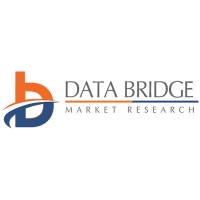
Software for Data Management: The Ultimate Solution for Modern Businesses
Introduction to Data Management Software
In today’s digital-first world, businesses generate vast amounts of data every single day. From customer interactions to internal processes, every activity contributes to the growing data pool. Managing this data efficiently has become a necessity rather than a choice. This is where software for data management comes into play. Data management software enables organizations to collect, store, organize, and analyze data effectively, ensuring accuracy, accessibility, and security. It acts as the backbone of decision-making, allowing companies to transform raw data into actionable insights.
What is Data Management Software?
Data management software is a system or platform designed to handle the entire data lifecycle — from data collection and storage to retrieval, analysis, and deletion. It provides tools to organize large volumes of structured and unstructured data, ensuring that information is easy to access, accurate, and up to date. Businesses use this software to manage data from different sources like CRM systems, marketing tools, IoT devices, and business applications. The ultimate goal is to make data useful and meaningful.
Why Businesses Need Data Management Software
Without proper data management, organizations face issues like data duplication, inconsistency, loss, or inaccuracy. These problems can lead to poor decision-making, compliance risks, and operational inefficiencies. A robust software for data management eliminates these challenges by offering centralized data governance, real-time updates, and secure access. It enhances productivity by reducing manual efforts and minimizing data-related errors. Additionally, data management tools help maintain compliance with regulations such as GDPR or HIPAA, ensuring data privacy and protection.
Key Features of Effective Data Management Software
When choosing software for data management, businesses should focus on certain essential features that ensure efficiency and scalability.
Data Integration
A strong data management solution can connect to multiple data sources, both internal and external. Integration capabilities allow seamless data flow across applications and departments.
Data Quality and Cleansing
Data accuracy is critical. The software should have features to identify and correct errors, remove duplicates, and standardize data formats, ensuring that all data is reliable and ready for analysis.
Data Security and Compliance
Security is non-negotiable when it comes to handling sensitive information. A good system includes encryption, user authentication, access control, and audit trails to protect data integrity and maintain compliance.
Data Storage and Scalability
As businesses grow, data volumes increase exponentially. A scalable solution can accommodate this growth without compromising performance, whether the data is stored on-premises, in the cloud, or in a hybrid environment.
Data Governance and Metadata Management
Data governance ensures consistency and control. Metadata management helps users understand where data comes from, how it’s used, and its relevance, promoting transparency and accountability.
Analytics and Reporting Tools
A great data management tool includes analytics and reporting capabilities to help visualize trends and generate actionable insights. This empowers decision-makers with data-driven intelligence.
Benefits of Using Software for Data Management
Implementing a data management solution offers numerous benefits that contribute to business success.
Improved Decision-Making
With clean, accurate, and accessible data, organizations can make smarter, faster, and more informed decisions.
Operational Efficiency
Automated processes reduce manual data entry, minimize human errors, and save time, enabling teams to focus on strategic tasks.
Enhanced Data Security
Robust encryption and access control mechanisms ensure that data remains secure from unauthorized users and cyber threats.
Regulatory Compliance
Businesses can easily adhere to data protection regulations with built-in compliance tools that monitor and manage data privacy.
Cost Reduction
By streamlining data workflows and reducing redundancies, companies can cut operational costs and allocate resources more effectively.
Better Collaboration
A centralized data management platform fosters collaboration across teams, allowing everyone to work with the same up-to-date information.
Popular Types of Data Management Software
There are several categories of data management software, each designed for specific business needs.
Database Management Systems (DBMS)
These are the foundation of most data management solutions. DBMS software such as MySQL, PostgreSQL, and Oracle Database help store, retrieve, and manage structured data efficiently.
Data Integration Tools
Tools like Talend, Informatica, and MuleSoft help combine data from multiple sources, ensuring seamless communication between systems.
Data Warehousing Solutions
Data warehouses like Amazon Redshift, Snowflake, and Google BigQuery are used for storing large volumes of historical data that support analytics and reporting.
Master Data Management (MDM) Software
MDM platforms ensure that critical data such as customer or product information is consistent and accurate across the organization.
Data Governance Tools
Software such as Collibra or Alation focuses on enforcing policies, managing access rights, and maintaining data integrity across systems.
Cloud-Based Data Management Platforms
Modern solutions like Microsoft Azure Data Factory or AWS Glue offer cloud-based data integration and processing capabilities, ideal for remote or large-scale operations.
How to Choose the Right Software for Data Management
Selecting the ideal software depends on various factors, including business size, data complexity, and specific requirements.
Assess Your Business Needs
Understand what kind of data you manage, how it is collected, and the challenges you face in handling it. This helps identify the features you need.
Scalability and Flexibility
Choose software that grows with your business. Cloud-based and hybrid solutions often provide greater scalability and flexibility.
User-Friendly Interface
Ensure the platform is intuitive so that employees across departments can use it without extensive technical training.
Integration with Existing Systems
The software should easily connect with your current tools such as CRM, ERP, and marketing platforms for smooth operations.
Vendor Support and Updates
Choose a reliable vendor that provides continuous technical support, updates, and security enhancements.
Security Standards
Always verify that the software adheres to global security and compliance standards to safeguard your sensitive business information.
Future Trends in Data Management Software
As technology advances, the capabilities of data management tools continue to evolve.
Artificial Intelligence and Machine Learning Integration
AI-driven data management automates cleansing, classification, and predictive analytics, making data handling smarter and faster.
Cloud-Native Data Platforms
The rise of cloud technology has made data management more scalable and cost-efficient. Businesses are rapidly adopting cloud-native solutions for better flexibility and accessibility.
Real-Time Data Processing
Real-time analytics enables organizations to make instant decisions based on current data, enhancing agility and responsiveness.
Increased Focus on Data Privacy
With stricter global data regulations, future software will continue to prioritize privacy, encryption, and user consent management.
Blockchain for Data Integrity
Blockchain technology is being explored for ensuring data transparency and traceability, especially in financial and healthcare industries.
Conclusion: The Future of Efficient Data Management
In a data-driven era, the importance of software for data management cannot be overstated. From improving data accuracy to driving strategic insights, these tools empower businesses to make informed decisions and maintain a competitive edge. As organizations continue to expand digitally, investing in a reliable and scalable data management solution is no longer optional—it’s a strategic necessity. Choosing the right software today can help future-proof your business, ensuring that data remains one of your most valuable assets.
Final Thoughts
Efficient data management is the key to digital success. With the right software, businesses can transform raw information into powerful intelligence, enhance operations, and achieve sustainable growth. Whether you’re a small startup or a large enterprise, adopting modern data management tools will set the foundation for long-term success in the data-driven future.

